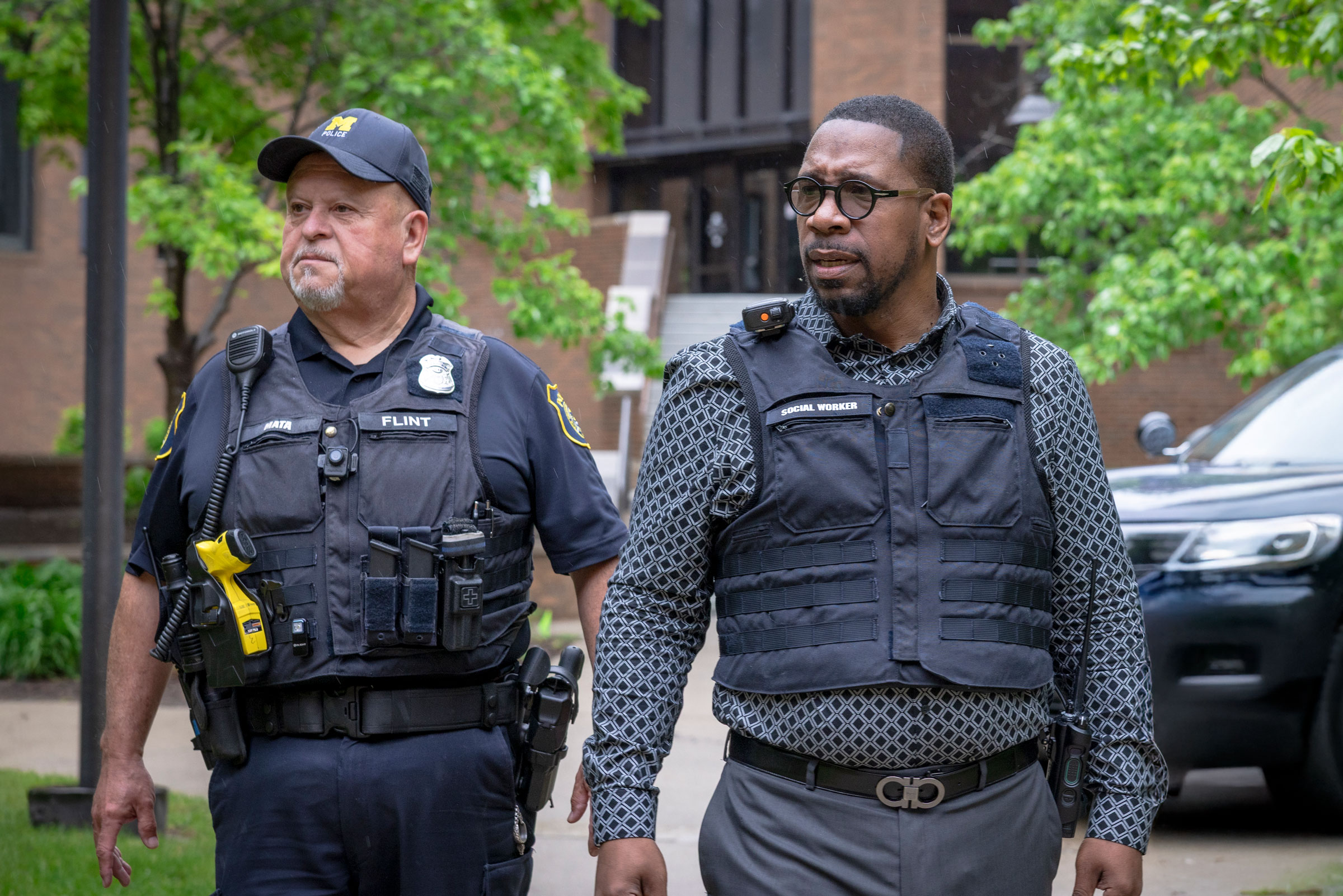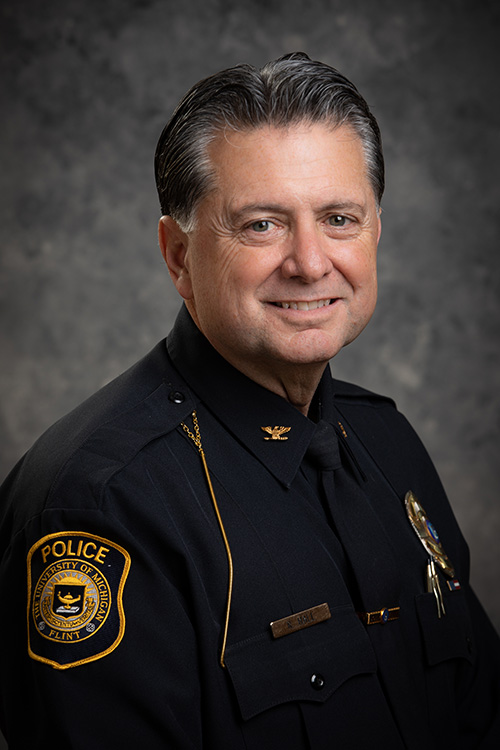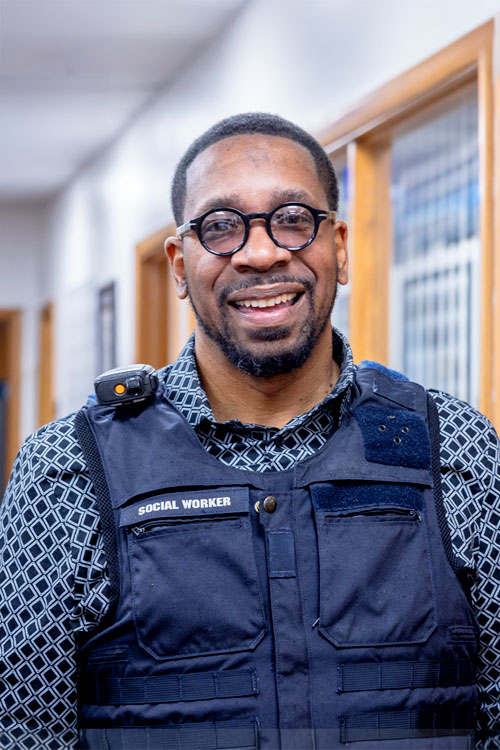Bridging compassion and community: UM-Flint welcomes first co-responder social worker

As part of a bold, evolving approach to public safety, the University of Michigan-Flint Department of Public Safety has welcomed its inaugural co-responder social worker and community engagement manager. Martez Warren, a longtime Flint-area social worker and community advocate, began in the new full-time role this week, reflecting a campus-level commitment to holistic, compassionate problem-solving in law enforcement.

"This new position strengthens our ability to serve our community with empathy, professionalism, and the kind of holistic support that helps solve problems at the root," said Ray Hall, UM-Flint chief of police and DPS director. "Society is changing and the way we approach public safety must change with it."
The position, funded by a Community Policing Competitive grant from the Michigan Commission on Law Enforcement Standards, is a key step in DPS's continued shift toward the Problem-Oriented Public Safety, also known as POPS, model. Under this framework, public safety officers increasingly work
alongside professionals like Warren to provide timely, empathetic responses to challenges such as mental health crises, housing insecurity, and issues affecting youth and families.
Warren, who holds a trio of social work degrees from Mott Community College (associate, 2006), UM-Flint (bachelor's, 2009) and Wayne State University (master's, 2010), brings more than a decade of social work experience to the role, including time in corrections, foster care and vocational rehabilitation. He's also deeply rooted in the community as a local pastor at the Church Without Walls Ministries in Flint and a longtime advocate for youth and family services. He also earned a doctoral degree in ministry leadership from Ashland (Ohio) University in 2022.

"I've always wanted to give back to the community," Warren said. "That's what moved me to become a social worker and by embracing this new position, it allows me to work with individuals and impact the community. This work can spark something powerful, maybe even national change."
Warren describes his work as twofold: responding to officer referrals in the field and building long-term relationships across campus and community organizations.
"In one case, an officer encountered someone who was assaulted and also experiencing homelessness," said Warren. "They referred the case to me. I followed up, connected the individual with resources, and provided the support they needed. In another case, I helped someone find employment through Michigan Rehabilitation Services. It's about following through and walking alongside people."
Equally important is Warren's role in reshaping culture and expectations inside and outside law enforcement. He participates in daily roll calls, rides along with officers and helps connect them to trainings and resources that support a more collaborative, problem-solving approach.
"Social work and police work have very different mindsets," Warren said. "But we're learning from each other. I'm listening to what officers are seeing, and they're hearing my perspective too. That kind of collaboration makes everyone more effective and safer."
Hall believes this team approach is essential as the department continues to transform from a "warrior" mentality to a "guardian" philosophy.
"Our communities are calling for help," Hall said. "We must be ready to respond, not only with enforcement, but with empathy and problem-solving strategies that build trust and reduce harm."
Warren agrees and hopes his presence on campus will help change public perceptions of policing as well.
"Police are not the enemy, they're advocates," he said. "And the more the community sees that, the more healing and trust we can build. Community is unity. And unity doesn't require uniformity, it just requires all of us working together for a common purpose."
With an eye to the future, Warren envisions growing partnerships with schools, courts, nonprofits and political leaders to address the root causes of social and economic instability.
"I hope this role will not stop here at UM-Flint," said Warren. "I hope that it provides opportunities to sit with judges and mayors and governors – and not just me but any individual who's doing this type of work – who will be able to express such a change in the community and some advancement, advocacy and healing, as well as trust among community members and law enforcement.
"Success for me is trust," he said. "It's when people feel they can reach out for help and know they'll get it. That's what I'm working toward."
- College Town
- Community
- Criminal Justice
- Department of Public Safety
- Social Work
- University News
- University Outreach
Robb King
Robb King is the director of marketing and communications at UM-Flint. He can be reached at rwking@umich.edu.
